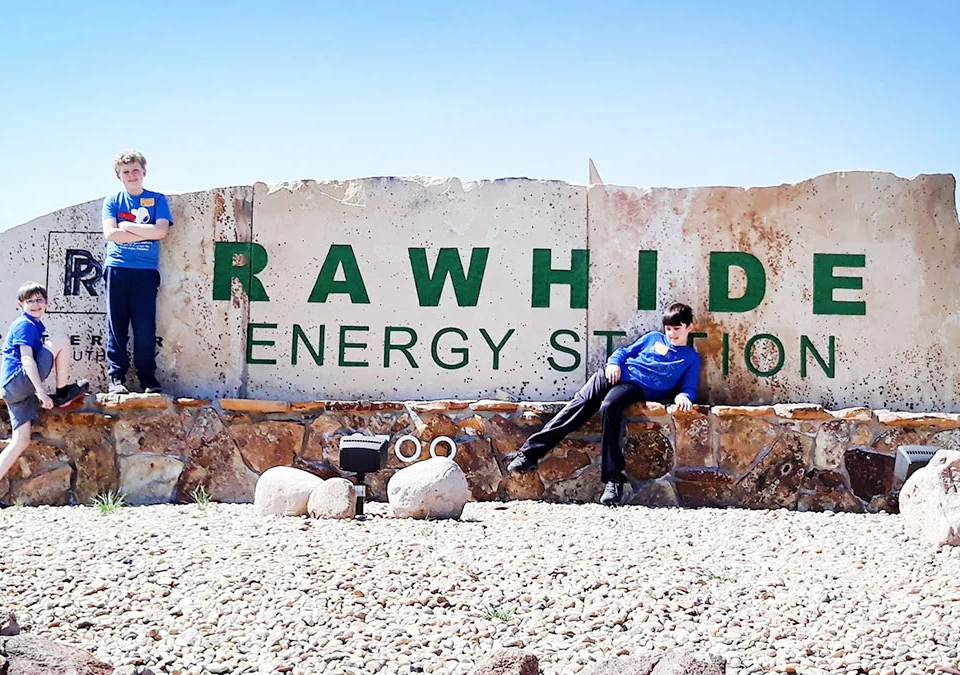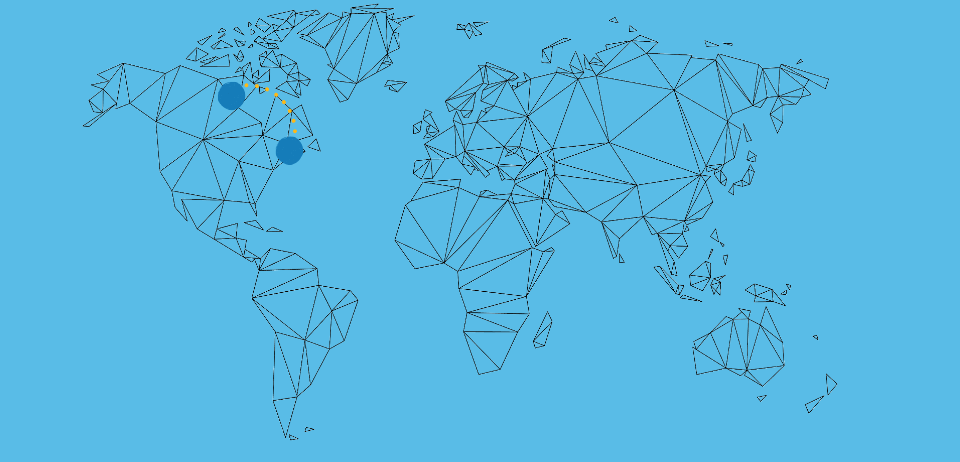Already a member? Log in to the Member Site at members.mastery.org.

The Shift to Competency-Based Education
November 30, 2017
MTC Announces Professional Learning Opportunities
December 19, 2017Khan Lab School: Putting Mastery-Based Education into Practice
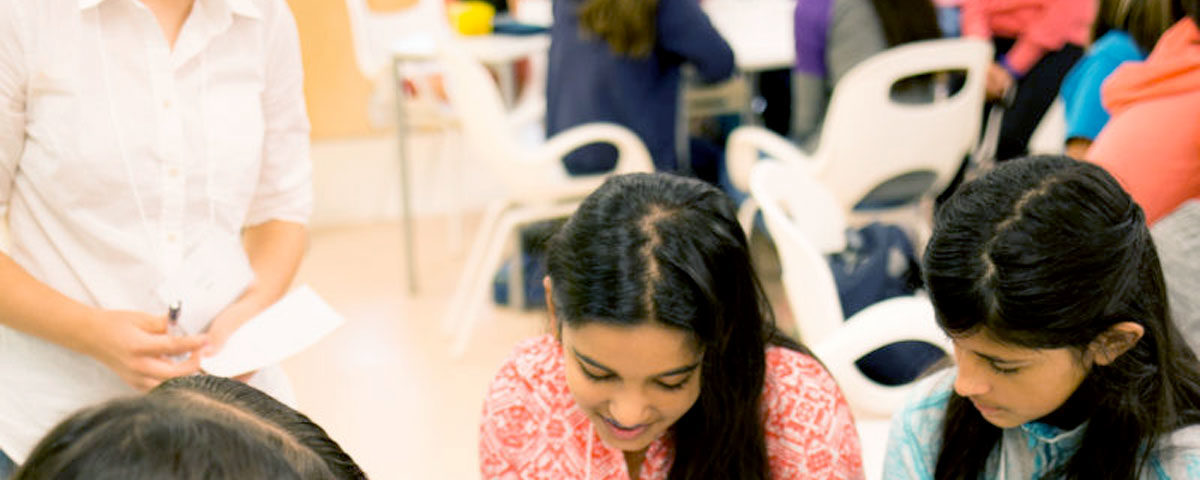
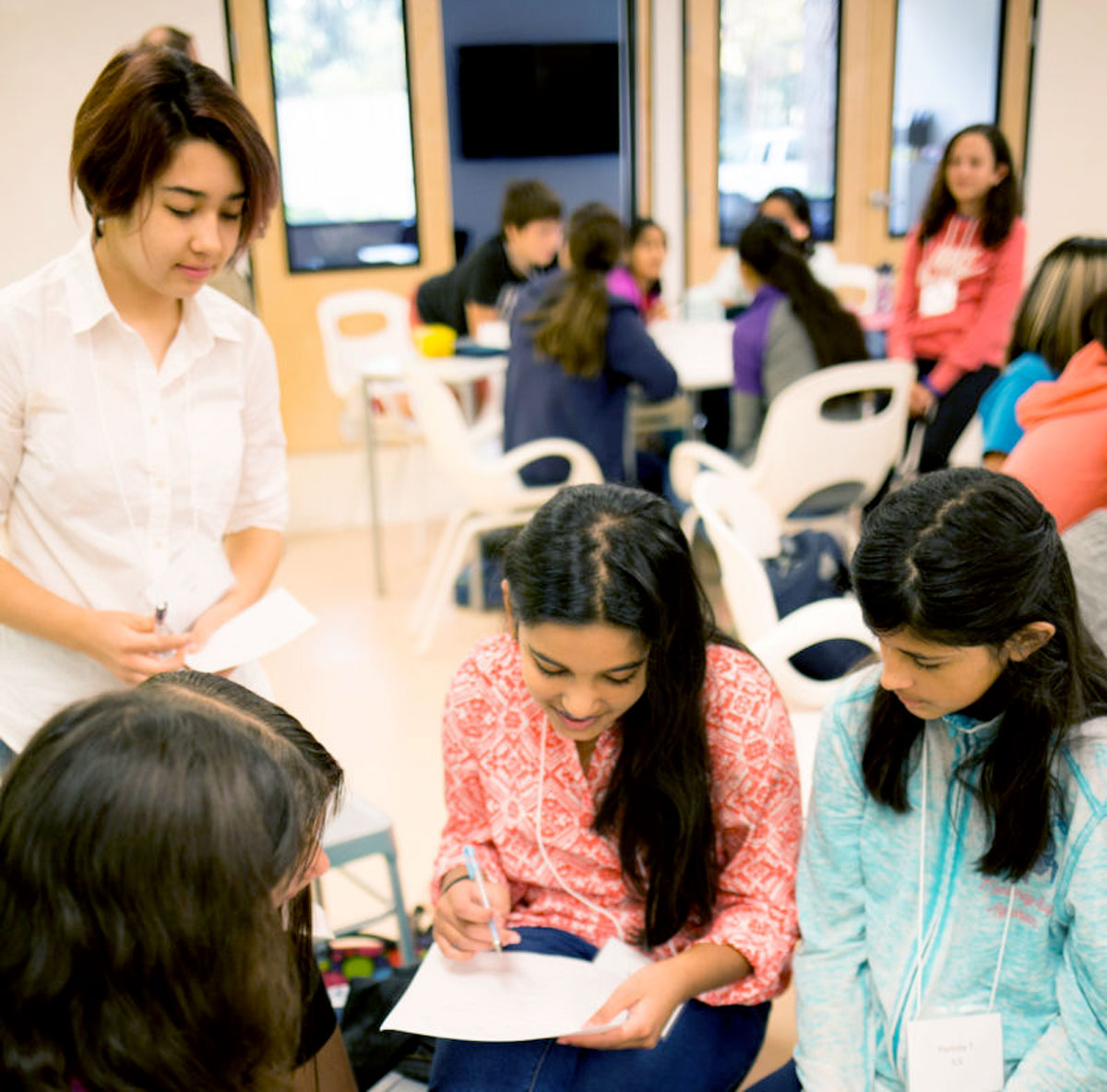
“Mastery is effective transfer of learning in authentic and worthy performance. Students have mastered a subject when they are fluent, even creative, in using their knowledge, skills, and understanding in key performance challenges and contexts at the heart of that subject, as measured against valid and high standards.” — Grant Wiggins, Educational Leadership Vol. 71
Let’s assume for a moment that we’re all on the same page: We want students to learn more by shifting our focus away from testing, grading and the rest and towards mastery of knowledge, skills and ethical habits.
Great. Now, how do we get there?
We have a few insights based on how we are prioritizing, defining and putting into practice mastery-based learning at Khan Lab School – an MTC member school associated with Khan Academy.
How have we designed our school around mastery rather than grades?
To understand mastery at our school, you need to look first at the role of our teachers. Khan Lab School has two types of teachers across all ages of students:
- Content Specialists, who specialize in teaching, tutoring, and assessing students in content areas such as Language Arts, Humanities, Computer Science, Math, Art, and Science. Specialists use inquiry-based instruction for their specialty subject areas, and they collaborate with their students’ Lead Advisors on interdisciplinary projects..
- Lead Advisors, who develop and support an appropriate level of student agency for each student in their advisory. These teachers guide students’ growth in social-emotional learning and Independence Practices, such as time management, self-knowledge and focus. They do this through weekly 30-minute one-on-one advising sessions with each student. Advisors also design and assess interdisciplinary projects for their advisees..
These distinct roles facilitate the two facets of a mastery-based approach: an instructional program that supports students learning at their own pace, and a systematic approach to developing the mindsets required of students to own their own learning. In our mastery-based program, it’s up to students to set the pace and depth of their learning, so the one-on-one discussions around work habits and mindset with their Advisors are essential. At the same time, it’s important to have subject-matter experts who can identify the content areas students are struggling with and provide support.
Measuring Mastery
“We can’t value only what is easy to measure; measurable outcomes may be the least important results of learning.” — Alfie Kohn
We have some bedrock principles of mastery at Khan Lab School.
Mastery must always be determined by a human being. While this may sound obvious, as a school that uses blended learning for part of the day, we have found that students sometimes like to claim mastery based on feedback from an edtech tool. There can be a certain thrill for a student when a website says, “Congratulations, you have completed X, Y, or Z.” But as educators, we know that knowledge must be retrievable and transferable to be enduring. Knowing how to solve a math problem or write well in one context (for example, a short answer on a quiz or a single blog post) does not confirm mastery.
Mastery must be assessed in different contexts. While a quiz or unit test taken online may provide one piece of evidence of mastery, it is only when knowledge is transferred to a different context, or the skill is demonstrated in a different way, that we can start to assess for mastery. In other words, knowledge must be applied. Students at KLS can only earn the level of “master” after they have demonstrated a skill multiple times in multiple ways. As Elliot Eisner, professor of Education at Stanford, once wrote: “The point of learning anything in school is not primarily to enable one to do well in school – although most parents and students believe this to be the case – it is to enable one to do well in life.”
For a given skill, learning is binary. You have either learned a skill or not. For instance, with our “Exit Tickets,” which assess whether a student has mastered a specific Math skill on a given day in our Lower School, the assessment consists of one to three questions. A student must get them all correct to receive credit toward mastery. If not, students must keep learning and try again. If a second attempt is unsuccessful, the Content Specialist will step in to provide in-person remediation.
Students have multiple opportunities to prove a deeper level of understanding. In some interpretations, mastery is a gating mechanism where students aren’t able to move on until they’ve mastered a skill. At KLS, students who haven’t yet mastered a skill are not prohibited from learning what’s next, but our mastery-based assessment system allows them to return at any point to prove a deeper level of understanding. Sometimes it can be helpful to move on to a new concept before the previous one has been fully mastered, to develop understanding in a new way. It’s not about having one shot on a final exam or about pleasing the teacher, and it is about more than just the content – it’s about truly demonstrating understanding of concepts and skills. The incentive is to learn something well, not quickly.
Beyond Content
In assessing student learning and growth, we need to look beyond content knowledge. Student well-being and achievement depend on much more than mastery of academic content, and their engagement in learning increases when we acknowledge this. At our school, we teach and assess:
- Content (through Mastery)
- Independence (through Practices)
- Qualities (through Experiences)
Within Content areas, we use a 5-level scale to indicate mastery of content. Currently, our five levels are:
- Novice
- Developing
- Approaching
- Master
- Teacher
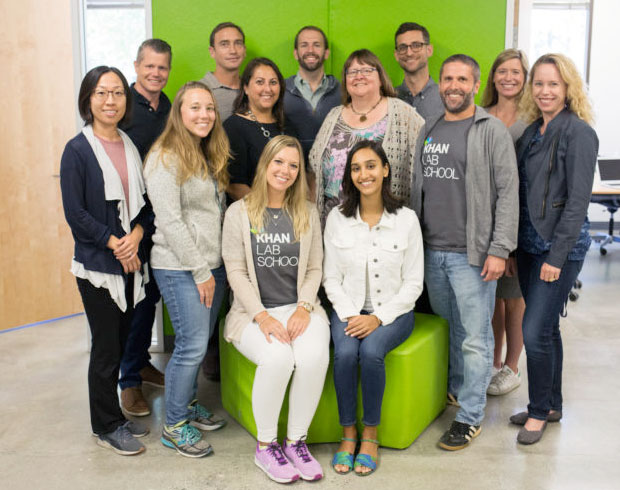
The Upper School team at Khan Lab School.
As a school, we’ve worked to standardize our definition of each Mastery Level across subjects as well as Independence Levels. The fifth level of “teacher” is a way for students who are passionate about a concept, and who want to go above-and-beyond, to show their depth of skill by teaching someone else successfully. This is a rare honor, and not the expectation.
Independence Practices are at the heart of our school. One fundamental goal of our school is to create independent, lifelong learners. We have developed an Independence Progression for students that begins at age 5 and continues until they are career-ready. It includes skills such as time management, focus, and collaboration. We believe that none of these practices can be “mastered” by age 18 (and most likely will never be mastered), so our assessment of Independence Practices is multi-layered and uses a separate scale from our mastery scale.
For Independence, we use a three-level assessment of “demonstrates consistently,” “demonstrates inconsistently,” and “never demonstrates.” When we assess independence, we rely on multiple stakeholders to provide feedback: Lead Advisors, Content Specialists, administrators, and peers.
In evaluating important Qualities such as curiosity or empathy (a difficult task), we assess for growth and reflection. We evaluate how a student has done relative to the expectations for that experience. For example, within the context of a project, did the student meet expectations for showing curiosity? In a collaborative experience, did that student meet expectations for responsibility?
Moving Forward
As a lab school, we are constantly evaluating and improving the educational experience for our students, and we are committed to sharing our findings with teachers around the world. We know we do not have all the answers, and that through dialogue with other educators and sharing of best practices, we can and will refine our practices.
In collaborating with Mastery Transcript Consortium schools, we hope to help ensure mastery credits can be validated externally – in part to ensure that we avoid “mastery inflation” similar to what we now see with grade inflation.
Although it is often difficult, we are intentional in creating space to focus on student mastery and what it means across school divisions. We focus on our teachers and how to train and empower them to assess these competencies. And most importantly, we focus on our students.


